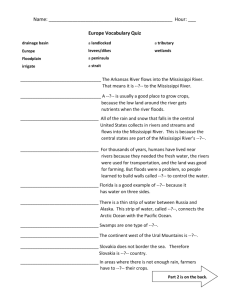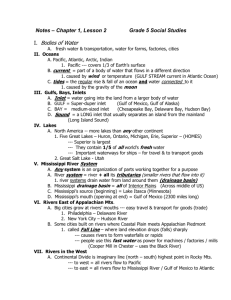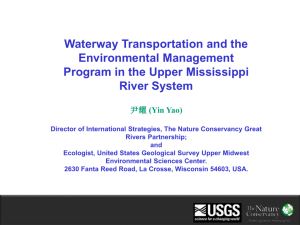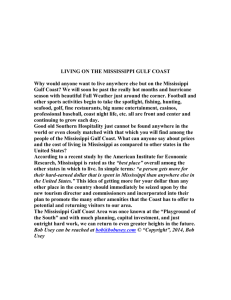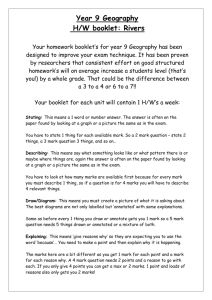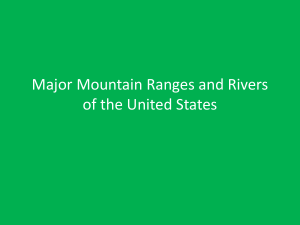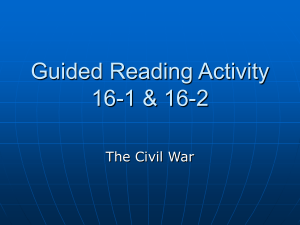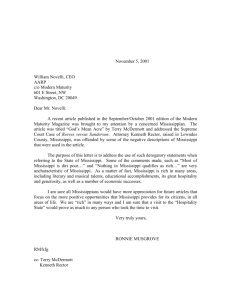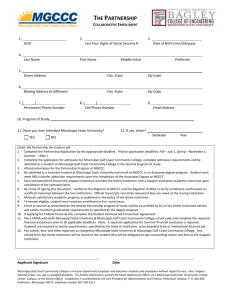Chapter 1
advertisement
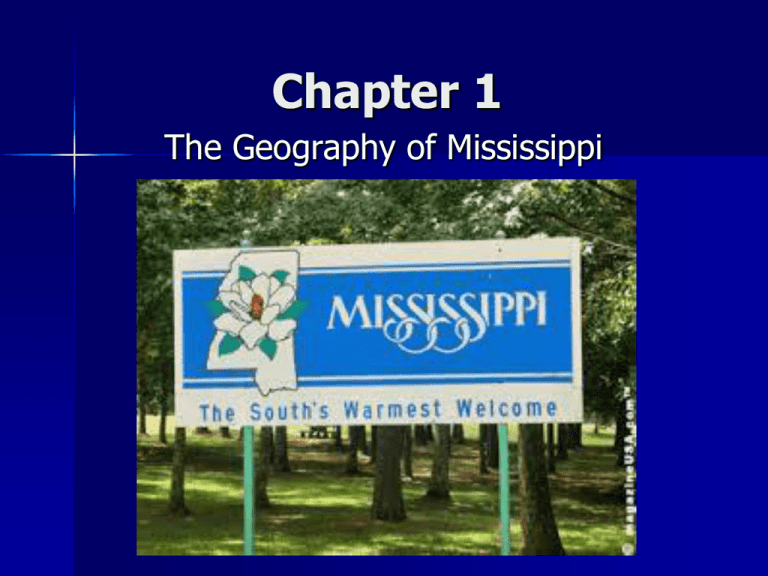
Chapter 1 The Geography of Mississippi The 5 themes of Geography Place- every place has both PHYSICAL and HUMAN CHARACTERISTICS. Human –Environment interactions- how we as humans interact and use our environment. Movement- transfer of good, ideas and services Regions- Both Natural and Cultural Location- relative location, compared to another place..absolute location is percise! Place Human and Environment Interactions Northrop GrummanPascagoula Mississippi’s relative location Mississippi’s Absolute Location It lies between 30 and 35 degrees North Latitude ****88 and 91 degrees west longitude. Services GOODS IDEAS Mississippi’s 5 Geographic Regions Delta-Northwest –flat fertile farm land Hills- Central and North Ms…Largest Region in state Piney Woods- Southern Ms. Timber growing Gulf Coast- Narrow strip bordering Gulf of Mexico, land not as fertile. Capital - Mississippi’s Natural Environment Climate: humid subtropical. Cool winters and warm/hot summers. Lots of rain!!! Normal temperature: is 62 degrees. Precipitation: coastal counties=60 inches a year. Northern counties=50 inches a year. Most of the rainfall occurs during the winter months. Average humidity ranges from 76% on the coast to 70% inland. Natural Hazards: Tornadoes and Hurricanes. Water Resources Surface Water: water in lakes, ponds, rivers, and oceans Groundwater: used for water supply. Rivers: 9 major rivers and 2 minor rivers that make up the drainage basin. Reservoirs- 6 in the state: Pickwick, Arkabutla, Sardis, Enid, Grenada, and Ross Barnett Mighty Mississippi River Longest River in the United States. Begins at Lake Itasca in Minnesota Flows 2,348 miles to the Gulf of Mexico. Major Drainage Basin for the interior of the United States. Missouri, Arkansas, and Ohio all flow into MS river. Deepest is 100 feet, to only 9 feet in some places. Widest point is in Illinois @ 4,500 feet. Many natural and man made levees. Each year 400 millions tons of cargo transported on MS River. Identify the following terms Alluvial soil Aquifer Climate Elevation Fauna Flora Ground water Hurricane Landforms Latitude Loam Loess Longitude Natural environment Precipitation Surface water Topography Tornado weather
